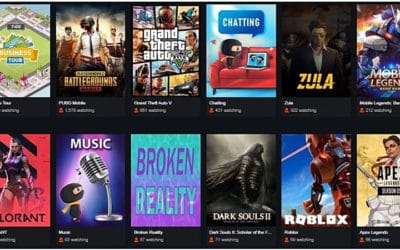This year our global conference is in London, a truly iconic, vibrant, global city. And one that’s creaking at some of the seams of its infrastructure.
This morning my tube was delayed on its journey to ease over-crowding at its end destination. The roads are frequently gridlocked, all it takes is one accident to cause chaos. Pollution levels frequently exceed permitted levels, causing heath problems. And London isn’t alone.
We need to find ways to live and work smarter. Is embracing a shared economy a way for cities to be more sustainable as a place to enjoy living and working? Today at Crowdsourcing Week Global 2016, where the day’s theme focused on Smart Cities and the Sharing Economy, we heard from numerous people who are leading the way.
What makes the sharing economy possible is mass interpersonal connectivity through mobile devices that enables internet-based C2C focussed organisations to challenge the traditional B2C business models.
The two biggest business sectors in the sharing economy are transport and accommodation. We were fortunate to hear from Liftshare, Zipcar and BlaBlaCar on one stage at CSW Global 2016. Sharing otherwise empty seats in our cars eases the strain on public transport, is cheaper for the passengers, gives the drivers a contribution to the costs of fuel, insurance and vehicle upkeep, and sometimes it’s just plain simple fun to have good company (not that the quality of conversation can actually be guaranteed!).
Did you know that in just 2 years time @BlaBlaCar saved enough energy to light Los Angeles for a year? #sustainablemobility #CSWGlobal16
— Claudia Parms (@claudia_parms) April 13, 2016
In the accommodation market, in four years AirBnB has generated a network of over 650,000 rooms. That’s more than the biggest hotel groups IHG and Hilton have amassed in their whole existence.
The sharing economy does throw up a consistent issue across all sectors: trust. Normally we would rely on a taxi driver being licensed by a regulating authority, and hotels have to meet stringent health and safety protocols. How much trust can we have in the sharing economy alternatives? Judging by the phenomenal growth of the organisations I’ve mentioned it seems that a high enough proportion of the public don’t regard it as an issue, though that’s no reason to be complacent.
ZipCar. Big company, simple idea, deep philosophical underpinnings. #innovation #scale #CSWGlobal16
— Marc_Low (@Marc_Low) April 13, 2016
Benita Matofska is Chief Sharer of The People Who Share. Benita reminded us we tend to trust friends and family. There is also ‘transitive trust’ where we feel ok with the extended network of the people trusted by the people we trust. As for the rest we are getting increasingly better at picking up the clues given by people’s social media profiles, what they comment on on Twitter and so on. And then there is the standby of judging people by who they associate with, the groups and organisations they belong to.
#SharingEconomy barriers: Trust, Safety and Privacy & Ease of Sharing. – by @benitamatofska #CSWGlobal16 pic.twitter.com/OkqaVAhLsn
— Dries Van Ransbeeck (@DVRansbeeck) April 13, 2016
Ari Kestin and Marius Rostad are the co-founders of Nimber, a crowd-based delivery service pioneered in Norway. They’ve created a service whereby individuals can have goods delivered or collected by other individuals who happen to be making the right journey at the right time. This also requires a great deal of trust that precious items won’t go missing or be damaged, that innocent people won’t be fooled in to handling dodgy items, and simply that strangers will live up to the obligations they make and not let you down.
Really cool: with @nimber packages are delivered by someone going somewhere anyway. #CSWGlobal16 pic.twitter.com/N9wmO3YYSt
— Aster van Tilburg (@Astervt) April 13, 2016
Nimber verifies identity details, requests User Reviews and provides basic insurance. Robin Chase of Zipcar also said that their customers “trust Zipcar as an organisation.” So we still see the traditional marketing and business benefit of strong B2C branding.
Sharing economy developments have to be inclusive, and accessible to all. Robin Christopherson of Ability.Net took us through personal examples of the challenges faced by people with a lack of vision or reading difficulties. Not a single person in the audience could complete the audio equivalent of Captcha’s “type in what you see so we know you’re not a machine” verification.
Srin Madipalli who founded Accomable, an app to help wheelchair-bound people find suitable places to stay and go, and how to get to them. Some aspects of the new sharing economy haven’t always a complete success. As an example, the growth of Uber has put many taxi fleets out of business, and with them went a number of wheelchair accessible vehicles they were legally required to have available. And hotel websites seem free to be able to say they provide step-free access when they don’t. So getting around still remained a problem for him and other wheelchair users until he launched his own app which covers places in 37 countries, is growing fast and has thousands of properties to come on the system.
Demand outstrips supply for accessibility accommodation provider @Accomable @SrinMadipalli #CSWGlobal16 making holidaytravel more #inclusive
— Rajiv V. Basaiawmoit (@rajiv_VB) April 13, 2016
Here are a final couple of examples of the power of the crowd when allied to public benefit. Aster van Tilburg of Voor je Buurt in the Netherlands told us about the power of crowdfunding to influence and benefit local government. Donations crowdfunding projects allow a local community to show their level of support for particular projects, and can add to the council budgets for civic projects. When the council shows they have been influenced by public opinion – usually very likely to get a high degree of local media coverage – it becomes a transparent distribution of the resources they are responsible for. And the crowdfunding process is also a very unifying process to build good community spirits and raise concern over facilities and governance.
Heather Leson of Qatar Computing Research Institute told us about ‘Digital Responders Everywhere’ – volunteers around the world spending time to contribute information to help the UN fulfil its Sustainable Development Goals and provide aid after natural disasters. Examples are people who directed aid and rescue workers arriving in Nepal after the earthquakes and mapping flood zones in Dar-Es-Salam.
Apologies to the few people I’ve left out, you were all amazing.




0 Comments